-
2021 Interns 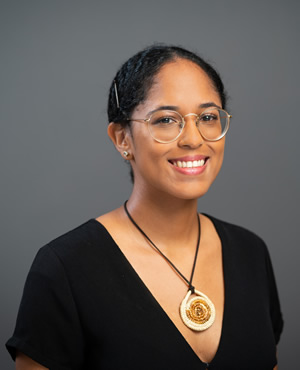
Natasha Beepath
Hi! I’m Natasha Beepath and I’m Carib (Kalinago). I’m from San Diego, California, and have a BA from the University of Hawaiʻi at Hilo. My culture is important to me, and I enjoy learning about the beauty of cultures outside my own. My perspective isn’t the only one and there is so much to learn and appreciate. Everyone has something to give back. From this internship, I gained a deeper understanding of the missing and murdered Indigenous women (MMIW) crisis from a political and legal standpoint. With my newfound knowledge, I hope to investigate the issue further and eventually write legislation to better protect Indigenous communities. I would love to help and support survivors, and one day expand beyond the borders of the United States.
CV
Poster "The Dirty Effects of Clean Energy: The Impact of Renewable Energy on Indigenous Women and Girls"
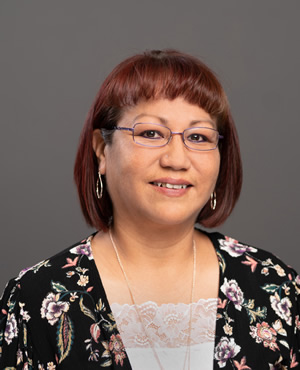
Kelly Bolton
My mother has given me the name P'iyaan Lax Aks, which translates to 'Smoke on the Water,' my English name is Kelly Bolton, and my Indigenous culture is the Tsimshian Country, located on the North coast of British Columbia, where I was born and raised. My family is from the Gitzaxłaał tribe, also a member of the Gisbutwaada clan and belongs to the Wa'absm Semiguul, which is my tribal house. I moved to Southeast Alaska in the early 1990s, where my ancestors settled on Annette Island, now known as New Metlakatla.
CV
After 27 years, I decided to return back to school to obtain my Bachelor’s Degree in Forestry and Wildlife/Fisheries Program and my ambition after graduation is to obtain a master's degree in Natural Resources. As Indigenous people, we are guardians of the earth, which is a passion I believe is ingrained in my culture. My aim is to apply what I've learned to aid in the preservation of my tribe's natural resources for future generations. I'm thrilled to be a part of the Haskell Environmental Research Studies Program (HERS), really looking forward to learning new skills and expanding my knowledge to help my tribe thrive.
As an intern with HERS this summer, I will be investigating how climate change affects Coho salmon populations in Metlakatla, Alaska. My data analysis will include interviews with Elders within my tribe and data gathering on water temperatures, precipitation, ocean acidification monitoring, and doing comparative analysis from a 20-year span.
Poster "Metlakatla: A Dehydrated Community in Southeast, Alaska"
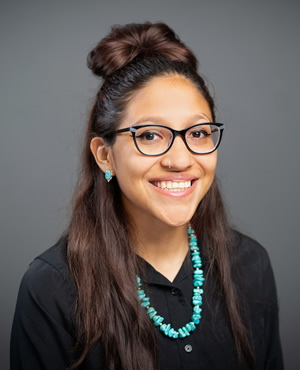
Rissa Garcia-Prudencio
Hi, my name is Rissa Garcia-Prudencio, my pronouns are they/she and I am from Las Cruces, New Mexico. I am Mexican and Tigua from the Ysleta del Sur Pueblo, located in the borderlands of Texas and Mexico near El Paso, TX. I graduated from Haskell Indian Nations University in the spring of 2020, with my Bachelor of Science in Environmental Science, with a focus on Indigenous Knowledge. I am very interested in a variety of fields ranging from plant ecology, water quality, Geographic Information Systems (GIS), as well as Indigenous environmental justice and food sovereignty. As a Haskell Environmental Research Studies (HERS) intern, my research focus is on how the different types of barriers along the U.S-Mexico border wall have affected vegetation cover in the Chihuahuan desert of New Mexico.
CV
Our plant relatives have been majorly overlooked when it comes to research on the effects of the border wall because of time, manpower, funding and safety. My project would utilize remote sensing to gather data over multiple areas, making the ability to conduct research in these areas more accessible. The topic of the border wall is an important issue within my community, not only does it divide the land but all the beings who live there. The destruction of vegetation along the border wall is an important issue for Indigenous communities of the borderlands because it affects the ability to gather important traditional foods and medicines. Participating in HERS has inspired me to continue to be a part of bridging Indigenous knowledge with western science, I plan to continue my HERS research when I enter graduate school in 2022.
Poster "Bordering Disaster: Vegetation Disturbance Along the U.S-Mexico Border Wall in the Chihuahuan Desert"
Research Proposal
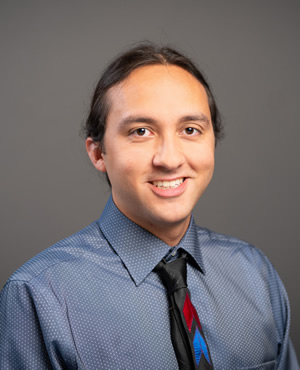
Joseph Granado
Déoñ:de bá tsán [Gáui [dógúl à dàu, Joseph à kauñ. Hello all, I am Kiowa and I am called Joseph. I’m from Carnegie, Oklahoma. This coming 2021-2022 academic year will be my Senior year and I will be graduating spring 2022. I am pursuing my degree in Environmental Studies with a minor in Native American Indigenous Studies at Fort Lewis College in Durango, Colorado. After I graduate, I hope to work with my own Tribe in tackling environmental issues within our reservation as well as working with other Tribal governments within Oklahoma that face any problems falling under the realm of environmental issues. My interest of study is to focus on issues such as land development projects and land uses that impact the Washita River and Red River, which are the distinguishing north and south boundaries of the reservation. As a Haskell Environmental Research Studies (HERS) intern my current research aims in focusing on agricultural grazing practices within the riparian zone influencing the change in the Oklahoma- Texas Red River’s route. After graduating from Fort Lewis College, I plan to work for my Tribe as I am a Bureau of Indian Affairs (BIA) pathways intern. After working for a year or two I plan on applying for a graduate program in Environmental Management.
CV
Poster "Shifting Waters: Tribal Governments’ Management of Lost Lands"
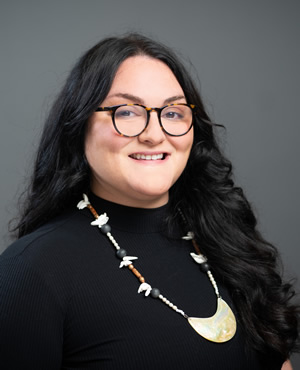
Annalise Guthrie
ᎣᏏᏲ/Osiyo/Hello, my name is Annalise and I am a citizen of Cherokee Nation of Oklahoma. I graduated from Haskell Indian Nations University with my BS in Environmental Science. In August 2021, I will attend the University of Kansas to pursue my PhD in Ecology and Evolutionary Biology and my research will focus on anthropogenic, or human caused, disturbances to the biogeochemistry of deep soils. As a 2021 Haskell Environmental Research Studies intern, I centered my research around how agriculture is influencing soil-water nutrient concentrations, at depths up to 120cm, in the Kansas prairie precipitation gradient. Framing my research in a way that can inform adaptation or mitigation strategies around anthropogenic disturbance consequences is a priority for the trajectory of my research. The linking of anthropogenic disturbances, precipitation, and deep soil relationships is suitable for a holistic understanding of rapid global ecosystem changes that are still to be realized in the Anthropocene.
CV
Poster "Digging Deeper: Land-use Effects on Soil-water Nutrients in the Kansas Prairie Precipitation Gradient"
Research Proposal
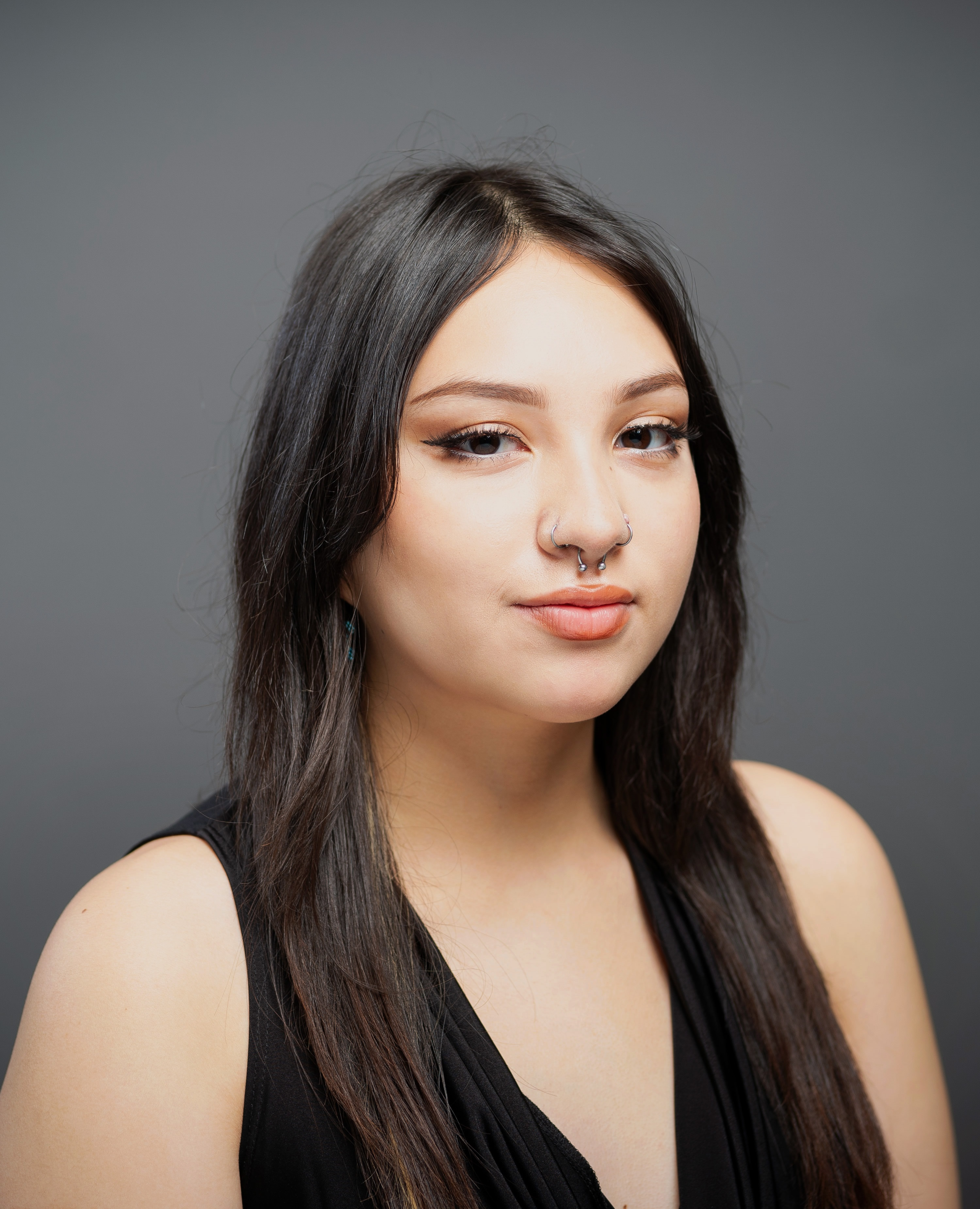
Zakari Howard
Háŋ. Zakari emáčiyapi kštó. Lawrence, KS emátaŋhaŋ. Malákȟota kštó. Wayáwa hemáčha. Haskell Indian Nations University él wabláwa. (Hello. My name is Zakari. I am from Lawrence, KS. I am Lakota. I am a student. I go to Haskell Indian Nations University.) I belong to the Cheyenne River Sioux tribe. I am an upcoming junior with an Associates in Natural Sciences and plan to graduate with an Environmental Science Bachelor’s degree. After graduation, I aspire to have a master’s degree in either Environmental Science or Ecology. I am grateful for this opportunity of participating in the 2021 Haskell Environmental Research Studies (HERS) Internship program. Participating in this internship allowed me to gain skills such as furthering my knowledge of Geography Information Systems (GIS), water quality data, and networking with other Native scholars. Ultimately, I am thankful for gaining experience in the field of environmental research as well as "decolonizing" western science. As a HERS intern, my project will focus on heavy metal concentration in the Cheyenne River due to high pressure injections. This project is personal to me because in Lakota nation, we believe that water is a living relative. Mní Wičóni is an expression in our language. The “ní” of Mní means “life” or “mother’s breast”. The “M” of Mní means “you and me”. In simplistic terms, the expression can be interpreted as a mother who carries water, or an action of living. In our creation stories, Mní is known as the First Consciousness given to Mother Earth. By researching issues that affect our water, we are protecting not only a relative, but Mother Earth. Analyzing the correlation between uranium mining and water contamination will aid in research on this issue that has little to no research. Furthermore, the results will aid in reclamation projects for potential failures of high pressure injections.
CV
Poster "Mní Wičóni: High Pressure Injection (ISL) Alteration of the Cheyenne River"
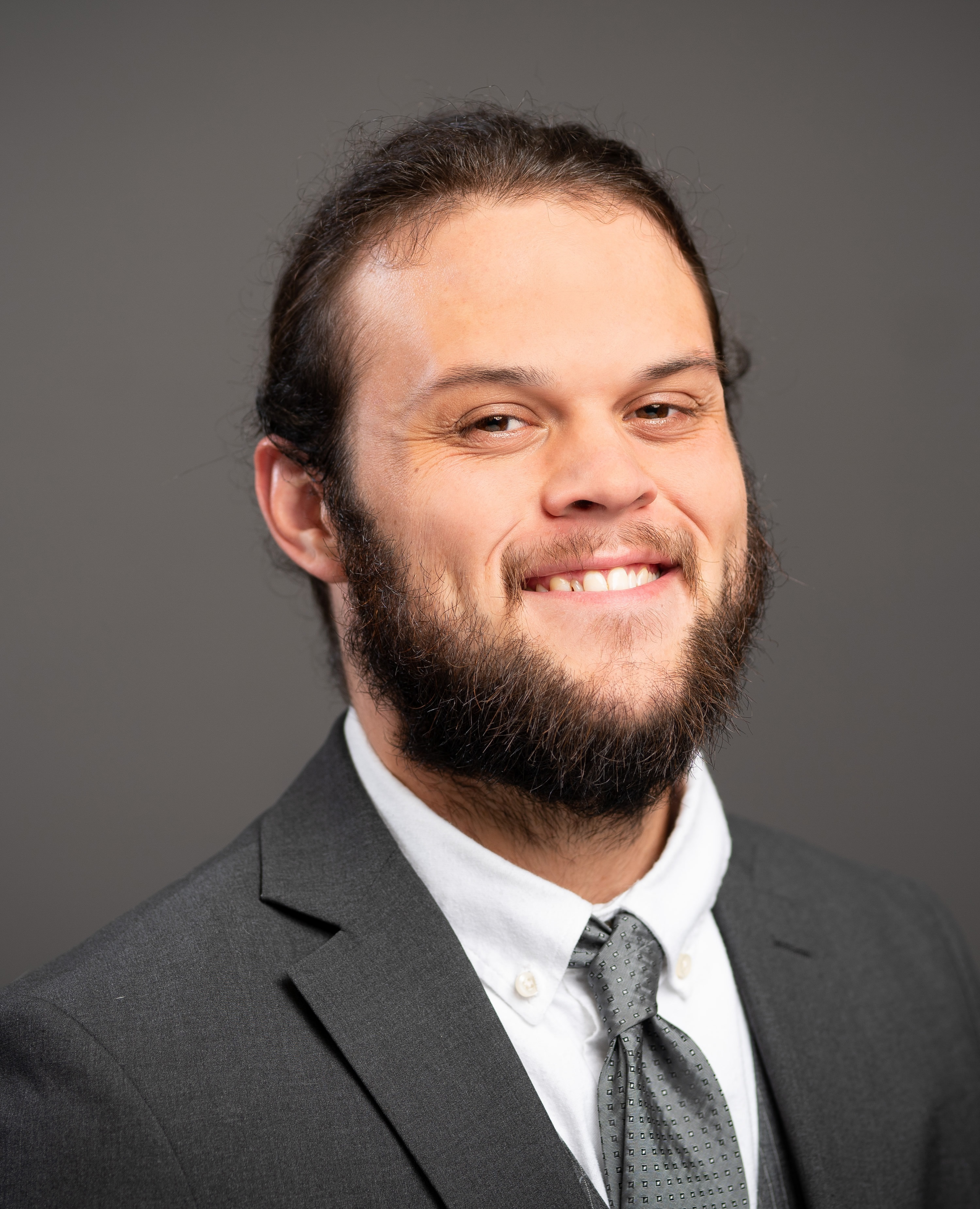
Quinton Hurlburt
Osiyo (Hello), My name is Quinton Hurlburt and I am a member of the Cherokee Nation. The Oklahoma-Arkansas border is where I call home. I am currently a senior in the American Indian Studies program at Haskell Indian Nations University, in which I will graduate Fall 2021. My academic interests lie within the social sciences: Sociology, Psychology, History, and others. I also enjoy reading, time spent outside in any way, and meeting new people. After Haskell, I am taking a break from my own education and will be an English teacher overseas. After that chapter of my life closes, I will continue my education in psychology and work for either the Cherokee Nation or my hometown. The HERS internship has been a massive benefit by exponentially raising our communication skills, research ability, and being a phenomenal starter experience into the higher levels of academics. The Indigenous communities have always taken care of me, from sickness to education. My only wish is to pay back at least some of the help and support they have given me throughout my life.
CV
Poster "Culture Erodes with the Coast: Relocation and Mental Stress in Newtok, Ak."
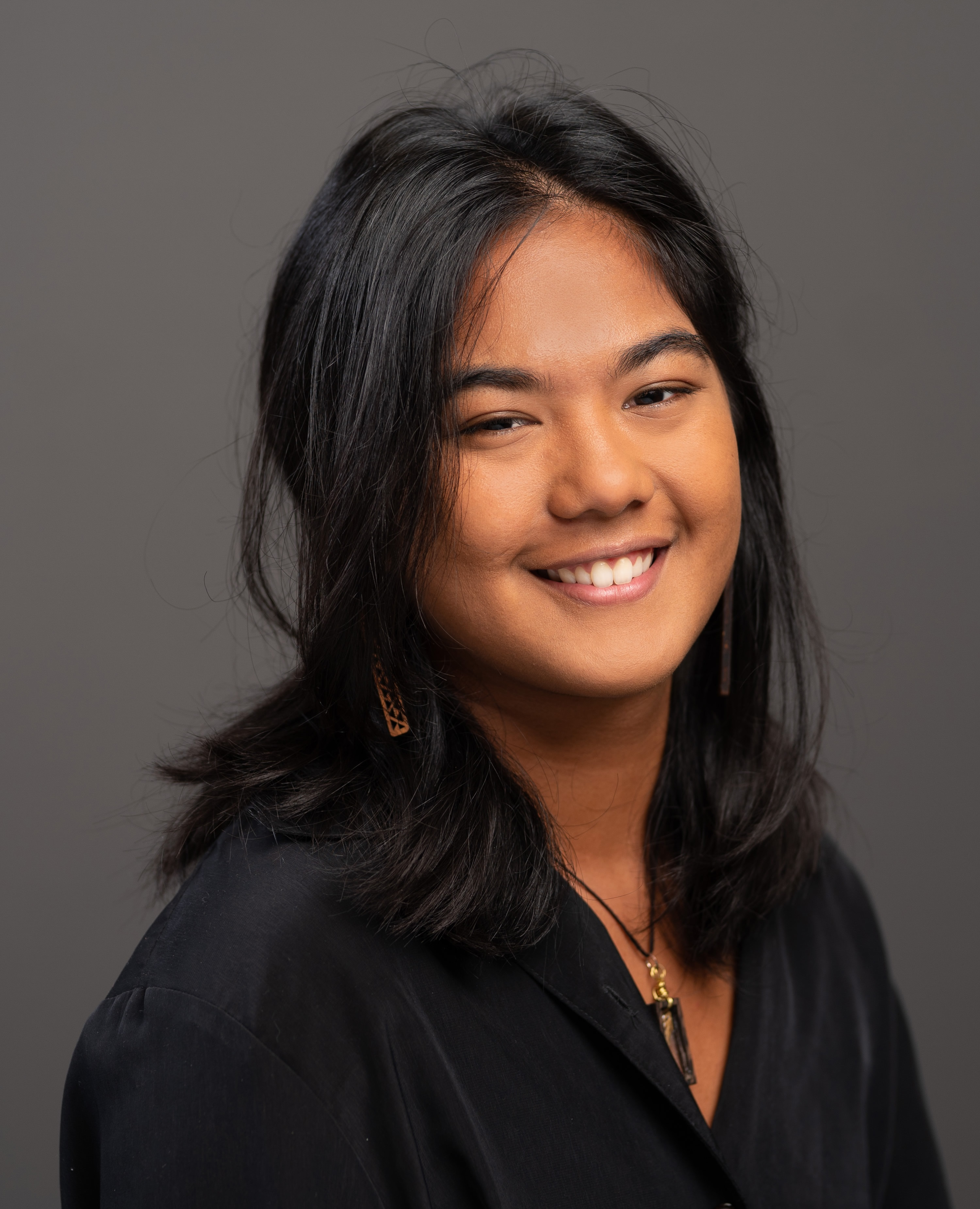
Caitlin "Kili" Kawaiaea
Aloha, ‘O Caitlin “Kili” Kawaiaea ko’u inoa, He Hawai’i au mai Nānākuli ma ka mokupuni o ‘Oahu. Aloha, my name is Caitlin “Kili” Kawaiaea, and I am a proud Native Hawaiian from Nānākuli on the island of Oʻahu. This coming semester, I will be a senior majoring in Environmental Science at the University of Hawaii at Hilo and wanting to pursue a career in conservation with a scope in Resilience Management. My Hawaiian culture has cultivated an intense appreciation for the natural world. After opening my eyes to the world of Resilience Management, I intend to build a strong relationship in Indigenous communities of their environmental attributes. Hawaii heavily relies on large corporations for imported foods which contributes to an unsustainable food economy. My project stems from the concern of abandoned ancient Hawaiian agricultural systems that once supported substantial populations. My research with the HERS program has helped me hone my interests and passions by developing a project that empowers the Native Hawaiian community by applying Traditional Ecological Knowledge/Indigenous Knowledge (TEK/IK). The HERS program has exceeded my wildest expectations; I’ve interacted with passionate Tribal Native individuals, scholars, and learned about the uniqueness of everyone’s cultures. Learning about the challenges faced by other Indigenous communities has inspired me to continue my education and work toward change.
CV
Poster "Traditional Innovation: Introducing A Borrowed Approach To Hawaiian Dryland Agriculture"
Research Proposal
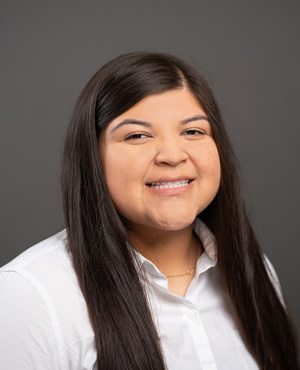
Mikayla Kerron
Hesci Mikayla cvhocefkv tos. My name is Mikayla Kerron. I am originally from Oklahoma. Mvskoke, Wichita & Affiliated Tribes, Makah, and Quinault are my tribes. I will receive a Bachelor of Arts in Indigenous and American Indian Studies from Haskell Indian Nations University in December 2021. In the Spring of 2022, I intend to enroll in the University of Kansas Masters of Indigenous Studies and Law dual degree program to further my studies in tribal sovereignty, environmental assessments, federal Indian policy, and tribal primacy in order to enforce better tribal land and water governance and restore unsafe tribal territories through environmental federalism. As a Haskell Environmental Research Studies (HERS) intern, I focused my research on granting tribal primacy as a means of restoring the Florida Everglades and the Seminole Tribe of Florida's cultural sovereignty. My participation in the HERS program has resulted in a plethora of potential opportunities to assist and protect our tribal lands and communities. I had the chance to connect with a number of Indigenous scholars, and hearing about their journeys as trailblazers gives me hope for future Indigenous scholars. The HERS experience has been unforgettable, and it has inspired me to support and fight for the rights of Indigenous peoples.
CV
Poster "What Congress Wants, Congress Gets: Seminole Sovereignty and Everglades at Risk"
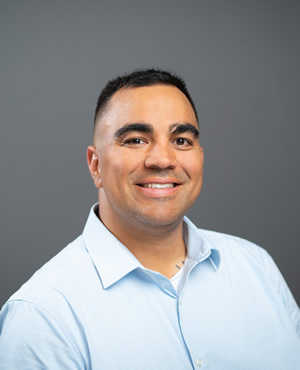
Emiliano McLane
My name is Emiliano McLane, and I am an enrolled member of the Te-Moak Tribe of Western Shoshone Indians of Nevada. I am also Pomo, Wailaki, and Nomlaki from the Round Valley Indian Tribes of California. I was raised going between both reservations and I currently live in Parma, Idaho. I am a senior at the University of Idaho College of Agricultural and Life Sciences pursuing my Bachelor of Science degree in Agricultural Science, Communication, and Leadership with emphasis in plant and soil sciences. I am planning on going into my master’s program next fall in either plant science or natural resources. My future plans are to work in natural resource programs where my background in science, communication, and research may be utilized. My passion is working with plants, and I do spend my spare time in the garden. I also enjoy working outdoors, hiking, and riding my dirt bike. By participating in the HERS internship I will increase my experience in research and team building. My hopes for the program are to gain a wealth of hands-on knowledge that I will need to be more successful going into my graduate program.
CV
Poster "Habitat Distribution Change of Pinus monophylla in Northeastern Nevada"
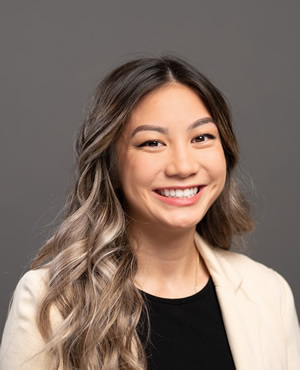
Pashyn Morimoto
Aloha, my name is Pashyn Kealakea Kaleili‘ionālani Morimoto. I was born and raised in Hawai‘i on the island of O‘ahu and I am a descendent of Native Hawaiians. I will be graduating in December 2021 from the University of Hawai‘i West O‘ahu with my BAS in Health Professions: Pre-medical. My career goal is to become a Doctor of Osteopathic Medicine (D.O.), I am currently applying to the Fall 2022 cycle of medical school. Osteopathic practice takes a holistic approach to health; becoming a D.O. will allow me to serve my patients in what I believe is the most optimal way, by helping patients understand that all components of the individual, including the mind, body, and spirit, are interconnected. I strive to apply a patient-centered model to my future practice. Creating healthier communities is of utmost importance to me; educating people on how personal lifestyle habits play such a significant role in well-being and providing them with the resources to grow will gradually shift community health in a positive direction. As an intern in the Haskell Environmental Research Studies (HERS), my research focused on how chemical introduction to aquatic ecosystems could affect the reproductive physiology of yellowfin tuna, which could ultimately impact public health. The HERS program allowed me to bring the connections between environment and health to greater attention.
CV
Poster "Influences of Benzophenone-3 on the Reproductive Physiology of Yellowfin Tuna in O‘ahu Seawaters"
Research Proposal
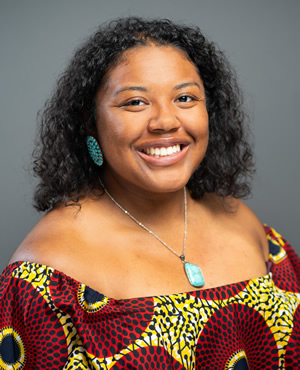
Autumn Powell
Yá’át’ééh/Hello my name is Autumn Powell I am Black and Diné from Window Rock, Arizona which is in Diné Bikéyah (Navajo Nation). I graduated this past spring from Haskell Indian Nations University earning my Bachelor’s degree in Environmental Science. This upcoming Fall of 2021, I will be in the one-year KU Post-Baccalaureate Research Education Program (PREP) dedicated to post-bachelor’s degree students who want to be prepare themselves for graduate school. I joined the PREP program to finalize my decision on what program I want to major in before I enter graduate school. Tó éí ‘Iíná dóó éí Diné Bikéyah Bikáá’gí (Water is Life on the Navajo Nation) is my research topic that focuses on decades of drought occurring in Diné Bikéyah and how water is intertwined with Diné knowledge. The physical elements (water, earth, fire, and air) are living beings, with how each elements are interacted and how each elements should be practiced, which is a form of Traditional Ecological Knowledge/Indigenous Knowledge (TEK/IK). My research focuses on the (TEK/IK) of Diné resources being re-introduced. If water is gone, so is the culture.
CV
This is my second time as a part of the Haskell Environmental Research Studies (HERS) Program, the first time being in 2018. Through the HERS Program, I’ve gained research skills such as critical thinking, online data collection through Zotero, as well as adopting and creating research methods specifically for study time. Outside the classroom I participated in Barbellas, Diné club, TRIO, and student activities. The powerlifting group called Barbellas is meant to empower women by normalizing women using free weights, this helped provide an outlet to balance my mental health. Diné club, TRIO, and student activities were vital to helping students connect with each other to share their perspectives of college or if we share similarities and gathering information to passing the knowledge to other students. My colleagues, mentors, and I have bonded closely with each other enabling us to work well in groups and give each other good feedback on our work. The 2021 HERS program has been an incredible journey of connecting with my Native peers and scholars who taught me to stay true to who you are in western society and continue practicing the good medicine of laughter.
Poster "Tó éí ‘Iíná dóó éí Diné Bikéyah Bikáa’gí (Water is Life on the Navajo Nation)"
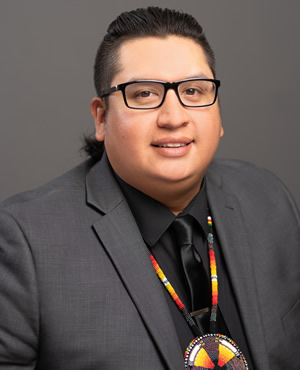
Asa Samuels
Tous, Asa Samuels néé'eesíh'inoo Hitesiinino noh hinono'einino, nee’eeteihinoo. Halito! Sv hohchifo yvt Asa Samuels. Okla Homma Chahta Okla atukma unchululi micha im vlhtoka sia hosh vla li.
CV
I am a member of the Cheyenne and Arapaho Tribes of Oklahoma and a descendent of the Choctaw Nation of Oklahoma. I graduated from Seminole State College (SSC) with an Associate Degree of Science in Biology. I will be attending The University of Oklahoma in the Fall of 2021 pursuing a bachelor’s degree of Science in Biology for wildlife conservation and Native American Studies for cultural preservation. I plan to apply to graduate school at The University of Oklahoma for a master’s degree of Science in Wildlife Biology. I will be an intern at the South-Central Climate Adaptation Science Center at OU, during the Fall semester, where I will be researching climate change on rivercane and planning a Culturally Significant Plants Symposium. My future goals are to impact conservation of wildlife and the sovereignty of all tribal nations in sacred land by researching climate change, environmental sustainability, animal endangerment, habitat restoration, heritage, language, and policy. I believe the HERS internship program has benefitted me in writing proposals and doing research in my selected fields of study and networking with other Indigenous students that have similar passions as I do.
As a HERS intern, I am writing a proposal and researching how Choctaw Traditional and Scientific Knowledge can be Implemented in the Restoration of Rivercane in the Kiamichi River Sub-Basin.
Poster "How can Choctaw Traditional and Scientific Knowledge be Implemented in the Restoration of Oski (Rivercane) in the Kiamichi River Sub-Basin? "
